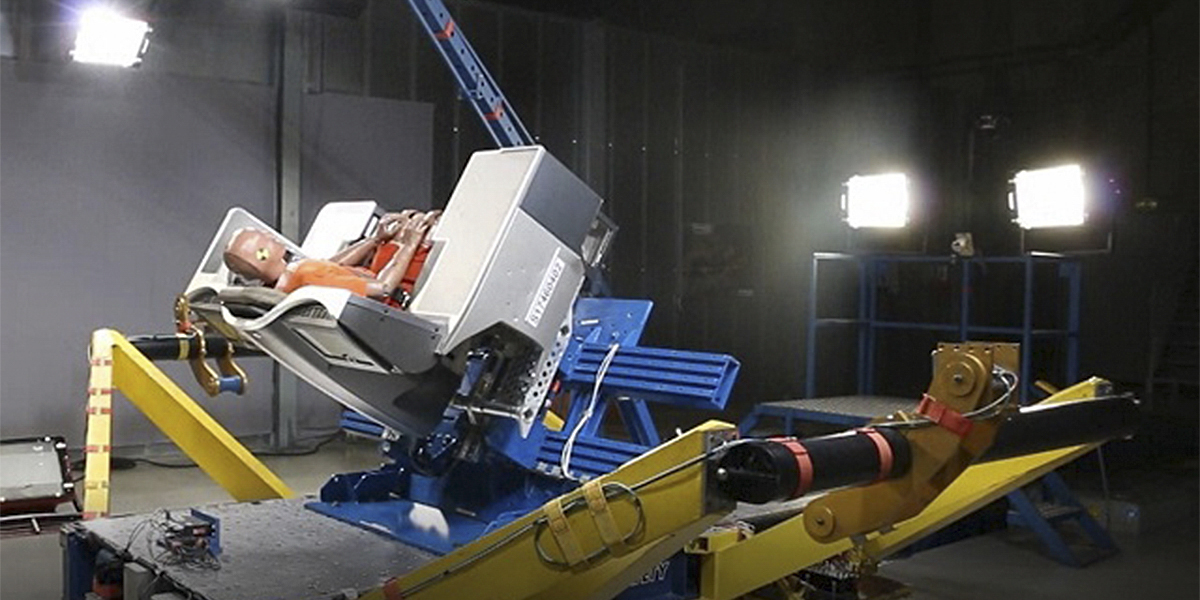GB T15100 Vehicle Roof Strength Passive Safety Testing
The GB T15100 standard is a critical guideline for the testing of vehicle roof strength in passive safety systems. This test ensures that vehicles meet stringent requirements to protect occupants during accidents, particularly focusing on the structural integrity of the vehicle's roof. The GB T15100 specifies procedures and criteria necessary for simulating real-world crash scenarios, ensuring that the roofs are capable of withstanding forces without compromising passenger safety.
The testing process involves subjecting a representative specimen to defined loading conditions to determine its resistance against various types of impacts. This includes axial compression, bending, and torsional loads, which simulate different accident mechanisms such as rollovers or frontal collisions. The test is particularly important for ensuring that the roof can absorb energy without collapsing, thereby protecting occupants.
Before undergoing testing, specimens are carefully prepared to ensure they accurately represent the production vehicle's design. This preparation includes cleaning and degreasing the specimen to remove any contaminants that could affect test results. Calibration of all instrumentation is performed meticulously to ensure accurate measurement of applied forces and displacement. The test setup must be aligned precisely according to standard specifications.
The testing apparatus used for GB T15100 compliance includes hydraulic loading machines capable of applying controlled loads, strain gauges for monitoring deformation, and displacement sensors for measuring movement during the test. Data acquisition systems capture all relevant parameters throughout the test duration, ensuring comprehensive documentation for analysis.
Once testing is complete, detailed reports are generated summarizing the results of each test parameter. Compliance with GB T15100 requirements is determined based on specified acceptance criteria, which vary depending on the type and size of the vehicle being tested. Failure to meet these criteria may indicate design flaws or insufficient materials that need addressing before production can proceed.
Quality managers, compliance officers, R&D engineers, and procurement teams benefit significantly from this testing service as it provides critical insights into product performance under simulated accident conditions. By adhering strictly to GB T15100 standards, manufacturers ensure their vehicles meet regulatory requirements while enhancing overall safety for passengers.
Applied Standards
The primary standard used in this testing service is the GB T15100. This Chinese national standard provides comprehensive guidelines on how to test and evaluate the strength of vehicle roofs. It covers all aspects from specimen preparation through loading procedures up until final reporting.
In addition to GB T15100, other relevant international standards such as ISO 6483 and ASTM F1930 can also be referenced where appropriate for additional guidance. These standards address similar topics but may focus more broadly on passive safety systems rather than exclusively roof strength testing.
Industry Applications
| Applications | Description |
|---|---|
| Automotive Manufacturers | Ensure compliance with national and international safety regulations. |
| R&D Engineers | Evaluate new designs for improved passive safety performance. |
| Quality Control Departments | Conduct periodic checks to maintain consistent product quality. |
| Procurement Managers | Select suppliers who meet stringent testing requirements. |
- Automotive manufacturers must comply with local regulations and consumer expectations regarding vehicle safety features.
- R&D engineers use this test to enhance design iterations focusing on enhancing passive safety measures like roof strength.
- Quality control departments utilize these tests regularly to ensure every batch produced meets specified standards.
- Procurement managers rely on rigorous testing results when selecting suppliers capable of delivering high-quality components.
Eurolab Advantages
Eurolab stands out as a premier provider of GB T15100 vehicle roof strength passive safety testing services due to its extensive experience and state-of-the-art facilities. Our team consists of highly qualified professionals with years of expertise in automotive engineering and materials science, ensuring accurate and reliable test results.
We offer flexible scheduling options tailored to meet your project deadlines without compromising quality. Our advanced instrumentation allows us to capture precise data points during each test run, providing detailed insights into the behavior of vehicle roofs under various loading conditions.
Eurolab's commitment to customer satisfaction is reflected in our transparent communication throughout the testing process. From initial consultation through final report submission, we keep you informed every step of the way. Our dedicated technical support team ensures that any queries or concerns are addressed promptly and effectively.
In addition to standard GB T15100 tests, Eurolab also offers customized solutions for specific client needs. Whether it's adapting existing protocols to fit unique requirements or developing entirely new methods based on latest research findings, our expertise guarantees tailored services that best serve your organization's goals.





